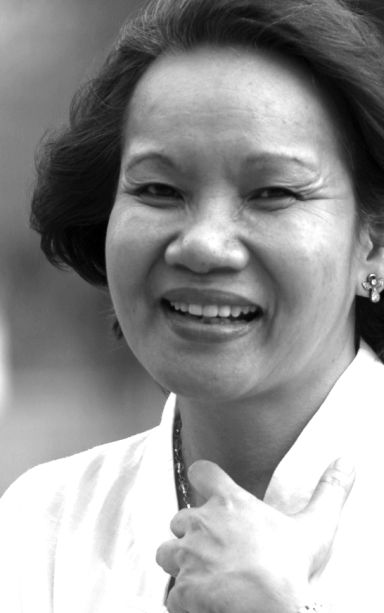
LOGARTA
Going through the last two issues of Linkages (LAW Center, Inc. publication), I realized that the operations of Legal Alternatives of Women Center, Inc. have actually been the implementation of the Magna Carta of Women. First of all, in the MCW’s listing of the rights of women, the first right is “Protection from all forms of violence, including those committed by the State.” A major service of the office is to respond to women victims of violence of all forms — physical, psychological, or economic. Not only legal services are provided but also psycho-social services provided by the professional social worker, Ms. Fe Tamayo-Cabatingan. Volunteer development lawyers have also assisted women in acquiring a barangay protection order when needed and requested.
“Making Change Work for Women” has also worked through paralegal trainings. Twenty barangays in Cebu City and 73 barangays in the province have sent representatives to these trainings. In holding these trainings in the localities, information regarding the situation of women have been be gathered. Here LAW Center, Inc. found out that “many areas need to be informed about the required VAW (Violence Against Women) Desk and its function; more barangay officials need to be informed regarding the Barangay Protection Order (BPO) which is a source of protection for women victims of violence; many families need to be reached by counseling services; clarifications are needed by police personnel in responding to VAW cases; many localities need sessions regarding the preparation of the Gad budget.” The training is meant “to help in the establishment or the strengthening of the barangays’ VAW Desks”. After the training, the paralegals can more ably assist victims of violence and other women with related needs in their localities. In the training, lawyer Virginia Palanca-Santiago provides an in-depth orientation on Republic Act 9262 or the Anti-Violence Against Women and their Children Act of 2004. The trainees also learn about the Magna Carta of Women.
Linkages also reported: “They applied learning and took initiatives after the training which marked significant changes in their lives and in their community.” A graduate of the training “lobbied for the installation of a VAW Desk in her barangay”; another graduate “volunteered in assisting the VAW Desk; this resulted to their appointment as members of the Lupong Tagapamayapa and Barangay Record Keeper.” Ma. Elena Ali, Women Federation President of Moalboal, “positioned herself for the creation of VAW Desks in all 15 barangays of the municipality. This resulted in the women associations of the barangays to be activated. They help monitor the children/minors who usually entertain foreigners coming to the community which is a tourist spot.” Others “systematized the record keeping of VAW cases” and encouraged “barangay officials to be more responsive and quick in issuing Barangay Protection Orders”.
Linkages also shared women’s narratives from the LAW Center, Inc. CCTN TV program “Sa Mata sa Kababayen-an”. The story of “Narding” is about a woman who suffered for 9 long years of “physical abuse and marital infidelity.” She did not want to change her situation “because of her love for her husband”. Besides she feared losing him would create more economic difficulties for the family. But when “she could no longer sustain the stamina of having to bear the forms of indignity she experienced”, she sought a barangay protection order. So she went to LAW Center, Inc. where she found “relief and friendship”. After various healing interventions, she considers herself “empowered” and declared: “Now I am able to help others.”
Now, this solo parent, Narding, has been elected president of the Urban Poor Association of her community. She visits the Barangay Captain’s office and has offered to do volunteer work on women’s and children’s concerns. Her goal is to work in City Hall at the Commission on Women and Family Affairs. She had made timely interventions protecting a woman and child from physical abuse with the use of her plastic whistle!
If we care enough, we can truly make our laws make a difference in women’s and children’s lives.